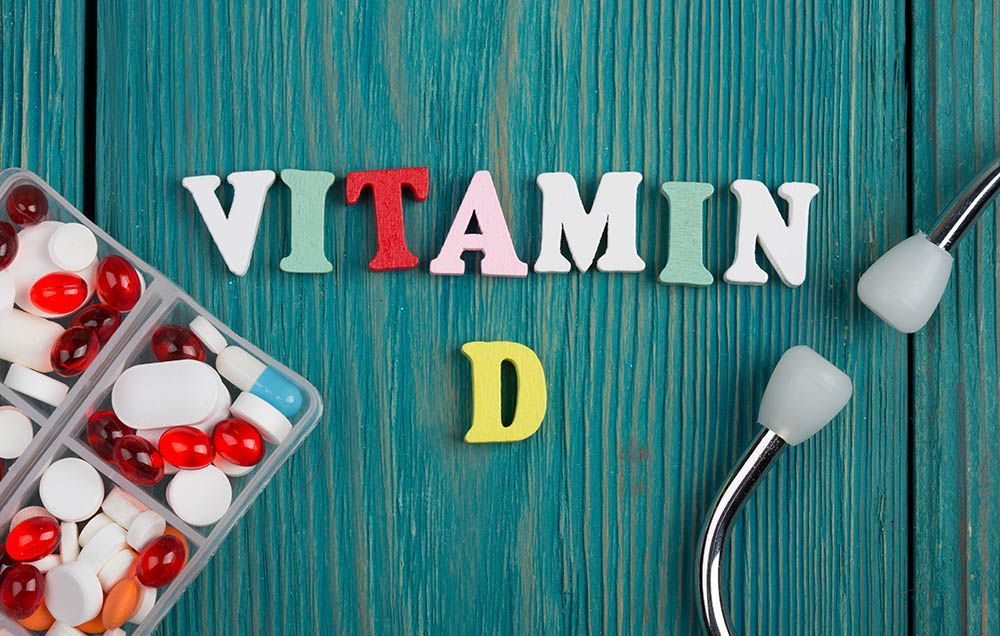While you should try to eat a diversified diet that provides all the nutrients you need, multivitamins may be useful if you are unable to or if you have a shortfall.
1. Vitamin D
Vitamin D helps our bodies absorb calcium, which is important for bone health. Not getting enough of this vitamin can increase:
- your likelihood of getting sick
- your chances of bone and back pain
- bone and hair loss
While you technically should be able to get your daily vitamin D by being in the sunlight for 15 minutes, the reality is that over 40 percent of people in the United States don’t. Living in wintery locations with little sunlight, working an office 9 to 5 life, and applying sunscreen (which blocks vitamin D synthesis) makes getting vitamin D hard.
2. Magnesium
Magnesium is an essential nutrient, which means that we must get it from food or supplements. Lerman notes that magnesium is best known for being important to our bone health and energy production. However, magnesium may have more benefits than that. She adds that this mineral can also:
- calm our nervous system and reduce
stress after 90 daysTrusted Source - ease sleep problems, as suggested
by an older study on
miceTrusted Source - regulate muscle and nerve function
- balance blood sugar levels
- make protein, bone, and even DNA
3. Calcium
Over 40 percent of the U.S. populationTrusted Source doesn’t get enough calcium from their diet. This means those people aren’t getting the mineral they need for strong bones and teeth. Women in particular start losing bone density earlier, and getting enough calcium from the start is the best nutritional defense against this loss.
4. Zinc
“Zinc tends to be low in older people and anyone under a lot of stress,” says Lerman. Which, (hello!) is basically everyone. And it makes sense. Zinc supports our immune system and helps our body use carbohydrates, protein, and fat for energy. It also aids in wound healing.
5. Iron
“Iron should be in your multivitamin, but not everyone needs the same amount of iron,” Lerman advises. Some of the benefits of iron include:
- increased energy
- better brain function
- healthy red blood cells
6. Folate
Folate (or folic acid) is best known for aiding in fetus development and preventing birth defects. But if you’re growing out your nails, fighting depression, or looking to combat inflammation, this ingredient is important, too.
7. Vitamin B-12
The B-vitamin complex is like a factory made up of eight diligent workers who band together to create and sustain our body’s energy supply by breaking down the micronutrients we consume (fats, proteins, carbs).
Don’t rely on your multivitamin
“This may be obvious, but it’s worth repeating: When it comes to vitamins and minerals, get it from food first,” Taub-Dix reminds us. Our bodies are designed to reap nutrients from the food we eat, and we will get all the nutrients we need, as long we’re eating a varied and balanced diet.
How to choose the best at-home vitamin D test for you
If you and your healthcare professional have determined that you would benefit from an at-home vitamin D test, there are some factors you’ll want to consider as you choose:
- Time: How fast do you need your results? What is the expected turnaround time from this company?
- Cost: How much does this test cost compared to your insurance copay at a lab? Do you have FSA/HSA funds you could use?
- Support: Will you be able to talk about your results with a qualified medical professional? It can be stressful to get lab results with no interpretation.
- Accreditation: Does this company work with a reputable lab, preferably accredited by laboratory accreditation agencies?



